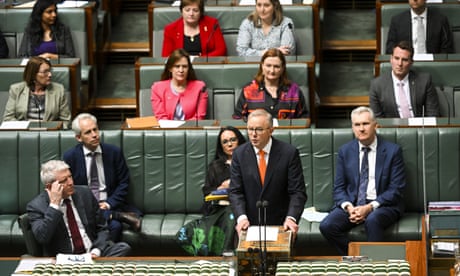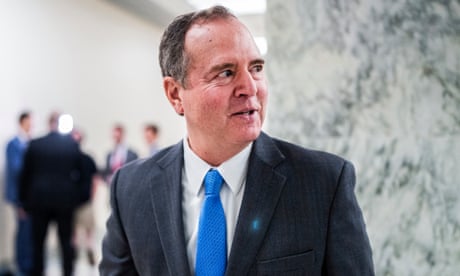- by cnn
- 24 Jul 2024
Australia’s progressive forces show signs of fracturing - and a test on free and fair elections looms | Katharine Murphy
Australia’s progressive forces show signs of fracturing - and a test on free and fair elections looms | Katharine Murphy
- by theguardian
- 12 Nov 2022
- in news

If you've been following the parliamentary tussle over the Albanese government's workplace reform package this week, you will have clocked some interesting divergences between the progressive forces in the 47th parliament.
If you've missed it, let's catch up quickly. Labor's efforts to implement multi-employer bargaining to boost wages growth hasn't won universal approval. The case study confirms progressivism in this parliament runs along a spectrum from centre-right to centre-left to hard left.
There's a very old proverb in Australia: money runs Sydney and the unions run Melbourne. This is a gross generalisation, and the whole notion feels pretty antiquated in the modern economy, but I remembered it this week when the Melbourne teal independents - Monique Ryan and Zoe Daniel - voted with the government on the second reading of the industrial legislation, while the Sydney contingent opposed the policy.
There's nothing sensational or surprising about a split inside the teal bloc, and between some of the teals and Labor. Disagreement was inevitable, because the teals are progressives, but they occupy Liberal seats. The teal base is predominantly (but not exclusively) small "l" liberal, post-material voters who feel estranged from the contemporary Liberal party. Some of the young progressives who voted teal in 2022 (as well as Labor voters, voting tactically in these contests) are probably entirely comfortable with institutionalised collectivism in the form of pattern bargaining and union representation - but I suspect the older, Liberal-estranged cohort, not so much.
Labor has a sizeable post-material constituency as well, and has since the Whitlam era, but the imperative of strengthening the bargaining system in favour of employees is embedded deep in the party's DNA because this is a central tenet of labourism. Labor has become practised at fusing its constituencies because this is the only viable path to majority government. Labor has to court and keep wealthy urban progressives animated by values like justice and equality, and low- and middle-income working people in the outer suburbs and the regions preoccupied with surviving an inflation shock.
This week's fracture in the House is interesting but not material given the fate of the package will ultimately be decided in the Senate, where the ACT independent David Pocock has the whip hand.
In any case, the industrial package is not my primary focus this weekend. I want to draw your attention to another fascinating difference of views playing out largely under the radar.
- by travelandtourworld
- descember 09, 2016
Travel Industry Called to Act on Climate Justice in Latest Report
read more



